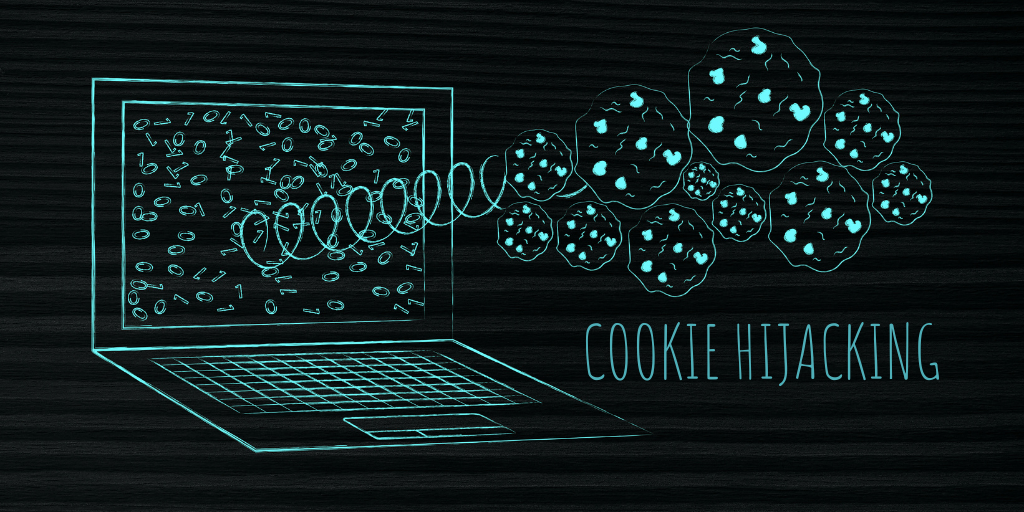Using Secure Attribute Cookies to Prevent Session Hijacking
In an era where cybersecurity threats are continually evolving, understanding how to safeguard your business from session hijacking is crucial. This...
4 min read
.jpeg) Michael Markulec
:
May 14, 2025 4:29:32 PM
Michael Markulec
:
May 14, 2025 4:29:32 PM

In an era where cybersecurity threats are continually evolving, understanding how to safeguard your business from session hijacking is crucial. This blog post will explore how important it is to use Secure Attribute Cookies to ensure your online sessions.
Session hijacking, also known as session sidejacking or cookie hijacking, is a sophisticated cyberattack where an attacker intercepts and steals a user's session cookie. This cookie is a small piece of data that contains session information, allowing the attacker to gain unauthorized access to the user's active session on a website or application. Such attacks are particularly concerning because they can effectively bypass even the most stringent security measures, such as multi-factor authentication (MFA), which is designed to add an extra layer of security beyond just a password. Once an attacker has control over a session, they can perform a range of malicious activities, including data theft, unauthorized financial transactions, and accessing or altering sensitive user accounts.
For small businesses, the repercussions of session hijacking can be particularly severe. These businesses often operate with limited resources and may not have the same level of cybersecurity infrastructure as larger corporations. As a result, a successful session hijacking attack can lead to substantial financial losses, as attackers may siphon funds or disrupt business operations. Additionally, the breach can severely damage the company's reputation, as customers lose trust in the business's ability to protect their personal and financial information. This erosion of confidence can lead to a loss of customer loyalty and a decline in business, further exacerbating the economic impact. Therefore, it is crucial for small businesses to not only understand the mechanics and risks of session hijacking but also to implement adequate preventative measures. By doing so, they can ensure the integrity of their cybersecurity defenses and maintain the trust and confidence of their customers.
Cookies play a critical role in web security by storing session information that allows users to remain authenticated as they navigate a website. These small data files, which are sent from the server to the user's browser, are essential for maintaining the continuity of a user's session. They ensure that users do not have to repeatedly log in as they move from page to page, providing a seamless and efficient browsing experience. This functionality is significant for e-commerce platforms, online banking, and other web applications where user authentication is crucial for accessing personalized services and sensitive information.
However, if not adequately secured, cookies can become a significant weak point in your cybersecurity defenses. Attackers can intercept these cookies through various means, such as man-in-the-middle attacks, where they position themselves between the user and the server to capture data, or through cross-site scripting (XSS), where malicious scripts are injected into web pages to steal cookies. Once intercepted, these cookies can be exploited to hijack user sessions, granting unauthorized access to sensitive accounts and data. This vulnerability highlights the importance of implementing robust security measures to protect cookies, including the use of Secure Attribute Cookies, encryption of cookie data, and ensuring that cookies are transmitted only over secure connections. By doing so, businesses can safeguard their users' sessions and protect against potential breaches that could lead to data theft, financial loss, and reputational damage.
Secure Attribute Cookies are a specialized type of cookie that incorporates specific security attributes meticulously designed to bolster their protection against unauthorized access and cyber threats. These attributes include the 'Secure' flag, a critical component that mandates the cookie is transmitted exclusively over HTTPS connections. This ensures that the data within the cookie is encrypted during transmission, safeguarding it from interception by malicious entities during data exchanges between the user's browser and the server. Additionally, the 'HttpOnly' flag is another vital attribute that plays a significant role in enhancing security. It restricts access to the cookie from client-side scripts, such as JavaScript, thereby mitigating the risk of cross-site scripting (XSS) attacks, which are a standard method used by attackers to steal cookies and hijack sessions.
By implementing Secure Attribute Cookies, businesses can significantly fortify their cybersecurity posture and reduce the likelihood of session hijacking incidents. These cookies act as a robust barrier, ensuring that sensitive session information, such as authentication tokens and user credentials, is transmitted securely and remains inaccessible to malicious actors who may attempt to exploit vulnerabilities in web applications. This enhanced security measure not only protects the integrity of user sessions but also helps maintain the trust and confidence of customers by demonstrating a commitment to safeguarding their personal and financial information. As a result, businesses can operate with greater assurance that their online platforms are resilient against potential breaches, thereby preserving their reputation and minimizing the risk of financial and reputational damage.
In addition to using Secure Attribute Cookies, consider implementing the following best practices to further protect against session hijacking:
Regularly rotate session IDs to limit the window of opportunity for attackers. By frequently changing session identifiers, you reduce the time frame in which an attacker can exploit a stolen session ID, thereby minimizing the risk of unauthorized access. This practice ensures that even if a session ID is compromised, it becomes obsolete quickly, rendering it useless to potential intruders.
Use Content Security Policy (CSP) headers to mitigate the risk of XSS attacks. CSP headers act as a powerful tool in your security arsenal by specifying which resources are allowed to be loaded on your web pages. By restricting the execution of untrusted scripts, CSP helps prevent cross-site scripting attacks, which are a standard method used by attackers to inject malicious code and steal session cookies.
Implement strict Transport Security (HSTS) to enforce HTTPS connections. HSTS is a web security policy mechanism that ensures browsers only interact with your website over secure HTTPS connections. By mandating encrypted communication, HSTS protects against man-in-the-middle attacks and eavesdropping, safeguarding the integrity and confidentiality of data exchanged between users and your server.
Educate employees and users about the importance of cybersecurity and safe browsing habits. Training your staff and informing your users about potential threats and best practices in cybersecurity is crucial. By fostering a culture of security awareness, you empower individuals to recognize and respond to suspicious activities, reducing the likelihood of successful attacks. Encourage practices such as recognizing phishing attempts, using strong passwords, and exercising caution when using public Wi-Fi networks.
By combining these strategies with Secure Attribute Cookies, you can create a robust defense against session hijacking and protect your business from potential security breaches. This comprehensive approach not only strengthens your cybersecurity framework but also demonstrates a proactive commitment to safeguarding sensitive information, thereby enhancing customer trust and ensuring the continuity of your business operations.

In an era where cybersecurity threats are continually evolving, understanding how to safeguard your business from session hijacking is crucial. This...

Unlocking the Essentials of CMMC Level 1 Compliance for Government Contractors

Discover how to safeguard your inbox with cutting-edge tools and strategies to combat spam and phishing.